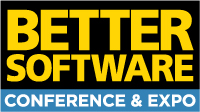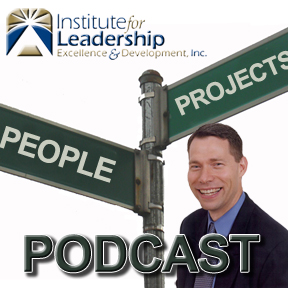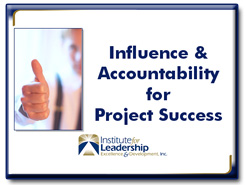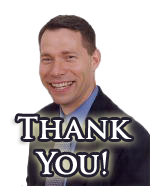
Saturday, December 13













|
Home > Leadership in the Real World Blog | |
|
Notes, links, and inspiration about topics related to personal and leadership development. |
|
|
| |
Leaders are Readers! Here's my Recommended Reading List
If you're like me, there are a lot of books you'd love to read but they just seem to stack up in a pile of good intentions. I don't consider myself a fast reader and I can honestly say that I don't particularly enjoy reading. But this I know for sure: leaders are learners. And one very beneficial way to further your learning is to fill your mind with books and other resources that will teach, challenge, and encourage you to be more effective and make a greater impact on your career, family, and the world. I'm often asked after keynotes and workshops for a list of recommended books. I have recently added a page on our website with book recommendations that I invite you to visit! Labels: Books I Love, leadership, learning, project management
| |
Do You Really Want to Lead?I'm spending the entire week next week with a group of aspiring leaders. They have answered the call of their organization to step up to a leadership role. In addition to more pay, they will also receive many opportunities to make a real difference for their organization.And most of them are clueless to the challenge ahead. The truth is that being a leader can be difficult work. It's easy to sit back and criticize someone in a leadership role. I try to remember that when I'm tempted to complain about national political leaders. It's completely different when you are in the chair, at the table, and the decisions rest with you. Leadership is, indeed, not a popularity contest. Do you really want to be a leader? It's a good question to ask as we start a new year. The Wall Street Journal had a thought-provoking article on the topic recently. It's worth reading if you have intentions on increasing the scope of your responsibility. Serving in a leadership role is a tremendously rewarding experience. And it is hard work. I look forward to both inspiring (and sobering) my aspiring leaders next week! What's your take? Do you remember what expectations you went into your role with? Has it been more challenging than you thought? Send me an e-mail with your thoughts! Labels: conflict, executives, leadership, managing up, uncertainty, work/life balance
| |
You Are Who You...... spend the most time with. Do you buy that? In my keynote entitled The Dirty Little Secret of Business, we talk about the importance of relationships. During the keynote I ask people in the audience: "How much does it matter who you spend time with? Why?" In my keynote entitled The Dirty Little Secret of Business, we talk about the importance of relationships. During the keynote I ask people in the audience: "How much does it matter who you spend time with? Why?"Overwhelmingly the responses are that we are significantly impacted by the people we are surrounded by. Speaker and author Allan Holender says it this way: "You are the mean of the five people you spend the most time with." As you look around your office, this might scare you. :) This principle goes beyond just the workplace or even adults. A study released earlier this month found that kids with overweight friends tend to be overweight as well. In the keynote I challenge people to be more intentional with whom they surround themselves. You may not be able to select the members of your team, but you do have control over who you go to lunch with, what podcasts you listen to, which books you read, and who you hang out with socially. We talk about the importance of diversity in relationships and finding people who make you better, not tear you down... who take your further, not hold you back... who you can help as well as they can help you.  Andy Stanley says, "What and who you listen to will determine what you do." Even if this isn't completely true in every situation, I'm convinced from my own experience (as well as from coaching hundreds of executives), that much of your success will come down to who your greatest influencers are. And you are most influenced by those you spend the most time with. Andy Stanley says, "What and who you listen to will determine what you do." Even if this isn't completely true in every situation, I'm convinced from my own experience (as well as from coaching hundreds of executives), that much of your success will come down to who your greatest influencers are. And you are most influenced by those you spend the most time with.Take a look around. P.S. If you would like more information about our Dirty Little Secret of Business keynote, contact me for details. It's a perfect session for company or department meetings, offsite meetings, and conferences. Labels: culture, influence, keynotes, leadership, listening, relationships
| |
"Develop Your Skills? Hey, You're Just Lucky to Have a Job!"I recall speaking at a national sales meeting back in early 2002 (a difficult time for many companies who were still digging out from 9/11). I hung out for a while afterwards for a meet and greet and decided to stay for the next session, which was led by the VP of Sales. He started talking about the new commission structure, which was clearly not being embraced by the sales team. In frustration the VP eventually blurted out, "Hey, if you don't like this--go get a job somewhere else! You're lucky to have a job!"That'll rally the troops! During difficult times, it's easy to fall into the trap of neglecting our teams: dropping the priority of developing our people under the presumption of "they're lucky to have a job and won't go elsewhere." I'm not advocating we put up with whining over difficult changes that need to be made. Rather, I'm talking about managers who don't keep employee development a priority because they think "they don't have to" or "can't" during difficult economic times. Stephanie Overby wrote a nice piece in a recent CIO Magazine issue entitled Forging Good Leaders in Bad Times. I particularly appreciated contributions by Dr. Karen Sobel-Lojeski: "Leaders are developing whether you want them to or not. The question is: Do we want to be aware of that and guide that in a conscious way?" Toyota CIO Barbra Cooper added a point we emphasize in our leadership development keynotes and workshops: "I try to take advantage of everyday events—problems or personnel issues—and turn them into real-time learning opportunities." Leadership development training is happening all around us, every day, if we pay attention. Add this article to your list to read this week. And contact us to learn how we can help you develop your teams. We can do so effectively without capsizing your budget! Even as you work to keep your business afloat during these stormy times, remember that everyone wins when you develop your people. When the ill winds pass (and they will), your organization well be better positioned than ever to take advantage of new opportunities. Labels: appreciation, executives, leadership, teambuilding, teams
| |
Join me at the Better Software Conference in June!There are so many conferences to choose from yet so little travel budget to invest this year. If you're in the software business, which one do you focus on to get the maximum value for your investment? I invite you to join me at this year's Better Software conference, June 8-12, 2009 at The Venetian in Las Vegas, Nevada. I'll be sharing my day long leadership session entitled The Leadership Tutorial. In addition, I'll be unveiling my newest keynote on relationships, entitled The Dirty Little Secret of Business. I'd love to see you there! I invite you to join me at this year's Better Software conference, June 8-12, 2009 at The Venetian in Las Vegas, Nevada. I'll be sharing my day long leadership session entitled The Leadership Tutorial. In addition, I'll be unveiling my newest keynote on relationships, entitled The Dirty Little Secret of Business. I'd love to see you there!Now in its sixth year, Better Software delivers the latest trends, technologies, and strategies in the industry today. I invite you to join me and the other speakers at Better Software for networking opportunities and learning about the latest issues regarding agile development, project management, people & teams, software testing & QA, software requirements, process improvement, metrics, and design & architecture. I've had the privilege of speaking at this conference for many years and it's always a highlight. You'll learn a lot and enjoy excellent networking with colleagues from around the world. To check out the program, visit http://www.sqe.com/BetterSoftwareConf/Schedule/Default.aspx Special Savings offerRegister using special promo code SKBS and save up to $300! Register by April 3rd to add the Early Bird Discount for up to $600 in total savings! Call the client support group at 888.268.8770 or register online at: https://www.sqe.com/BetterSoftwareConf/Register/SelectConference.aspxSee you in Vegas! Labels: conferences, leadership, relationships
| |
Jobs in Demand: Project ManagerA recent edition of CIO Magazine noted Project Manager as one of the hottest jobs in IT. Some favorite quotes from the article:
Reminder for project managers: We are paid to lead, execute, and deliver for the business. And if we do a good job at that, we can save our company money. Labels: leadership, project management
| |
People and Projects Podcast now on iTunes Just a quick note to announce our People and Projects Podcast is now available on iTunes. Click here to listen or subscribe! Just a quick note to announce our People and Projects Podcast is now available on iTunes. Click here to listen or subscribe!You are also invited to visit the People and Projects Podcast home page. Thanks! Labels: e-learning, leadership, podcast, project management
| |
A Good Excuse to Say "Thank You!"Hey, do you need a reason to celebrate today? Well guess what? The first Thursday of every November is International Project Management Day!Now how exactly is one to celebrate International Project Management Day? That's a fair question. Increasingly there seems to be a day or month for just about everything. For example, who would have known that November is also Peanut Butter Lovers Month? I can figure out how to celebrate that over lunch today. But how do you celebrate International Project Management Day? I propose you brainstorm a list of stakeholders who have been actively involved in (or have positively affected) your development as a manager/project manager. Today would be a great day to thank them. Here are some of mine:
P.S. I'm thinking real project managers would have come up with an acronym for today! So, fellow PM's, congratulations on IPMD! Labels: appreciation, leadership, project management
| |
Two Words That Can Improve Your InfluenceCan a couple little words really make a difference in your ability to influence someone, such as a customer or stakeholder?I just read a summary of Jeff Mowatt's new book Influence With Ease. Though I'm not recommending it as an addition to your reading list, I did appreciate the reinforcement that small changes to how we phrase things can make a big difference. Pop Quiz: What two words helped waiters and waitresses to increase their tips by 12%? "Thank you" comes to mind. In this article Mowatt talks about using the phrase "for you." Waitresses who said "I brought more coffee over for you" notably increased their tips over those who asked "Would you like more coffee?" Using "for you" helps the service to feel more personalized.
In a sense this calls back to what Dale Carnegie taught us decades ago in How to Win Friends and Influence People: "You can make more friends in two months by becoming interested in other people than you can in two years by trying to get other people interested in you." (By the way, here's a recommendation for you: add Carnegie's book to your must-read list if you either haven't read it or haven't gone over it again in the last 5 years.) You can radically improve your influence by focusing on the other person and their needs instead of yourself and your needs. Though there's no phrase that will magically get others to comply in every situation, consider adding a little "for you" into your comments this week.We offer keynotes and workshops that can help you and your team improve your ability to influence, even when you don't have authority. Contact us today to learn more. Labels: influence, leadership
| |
You Don't Have Time To Read This! Doesn't it seem that way? There just doesn't seem to be the time to do the things you need to do.... Even for the really important stuff like investing in your own skills. Doesn't it seem that way? There just doesn't seem to be the time to do the things you need to do.... Even for the really important stuff like investing in your own skills.My executive coaching clients regularly express a frustration that could be summarized as, "I just don't have enough time." "7 Signs of Poor Productivity" concisely shares some good pointers if you're feeling time challenged today. We recently finished a major update to our keynote entitled Beyond Time Management: 5 Keys To Getting More Done with Less Stress. In this fast-paced, entertaining session I share 5 keys to help you and your organization get more done with less stress. Based on our work with leaders and organizations around the world, I share practical ideas that go beyond typical time management concepts. You will leave with specific, practical actions you can start using right away to help you and your teams get focused, take action, and deliver results. Contact us today to add this keynote to an upcoming company or department meeting! Labels: executives, keynotes, leadership, time management
| |
Killer Whale Sized Opportunities to Teach and LearnWhat can you learn from "the new guy?"I've been enjoying Andy Jordan's blog on the People Side of Project Management. In a recent posting he talks about interacting with "the new guy" and how we can not only help them as mentors but that we can also learn from them in the process. In Amy Sutherland's book What Shamu Taught Me About Life, Love, and Marriage she relates that killer whale trainers remember that "every interaction is training." (click here for a post I made about this book). Every time trainers interact with Shamu they are teaching, whether they realize it or not. Both Shamu and the trainers are learning about what is expected, how to treat each other, consequences for actions, etc. I'm convinced that I miss killer whale-sized opportunities to learn each day because I'm not sufficiently paying attention. But when I do, those lessons can be more valuable than an expensive weeklong workshop. I remember when I finally got that the dirty little secret of business is that it's all done on relationships. Previously I wanted to believe that the smartest one wins. Or that the best argument wins. Or that filling out the "right" paperwork and following the "right" process was the secret to successfully delivering projects. But through the gift of a couple great mentors who modeled the secret of building relationships, I've been able to navigate situations that would have left me as Shamu Chow years before! Our interactions with the new guy (and the old guys!) are modeling how to look at the world of projects and business and people in a potentially different way. May we all be forces for good as we teach (and have our eyes and minds wide open as we observe). Want to become a more effective leader? Join our Leadership Fast Track Program to accelerate your ability to lead with confidence, take focused action, and achieve the results you desire.  Labels: leadership, learning, listening, managing up, mistakes, project management, project sponsors, teambuilding
| |
How to Say "No" (Without Saying "No") So, how do you say "No" when doing so feels like it could be, say, a career limiting move? Advice abounds, often over-simplifying the stakes by not taking into account the complexities of saying "No" to someone like a boss or by not giving specific enough strategies. So, how do you say "No" when doing so feels like it could be, say, a career limiting move? Advice abounds, often over-simplifying the stakes by not taking into account the complexities of saying "No" to someone like a boss or by not giving specific enough strategies.In a recent newsletter article I give some practical ways to say "No" without saying the letters N-O. Here's your chance to join the conversation: How do you handle situations when everything inside of you wants to say "No", but there are other pressures to say Yes? Add a comment to this blog entry to share your insights. Labels: accountability, conflict, denial, executives, influence, leadership, managing up, project sponsors
| |
Career Advice from the TopPart of our leadership development approach is to give participants an opportunity to interact with top level executives. We have found enormous value in getting aspiring leaders face-to-face with people who are sitting in the chair and to learn from their successes and mistakes.A recent CIO Magazine article shares some career lessons from top IT executives. Regardless of whether or not you are in IT, each of the brief entries provide insights that can be helpful to your career development. Is it possible we get too comfortable? Or perhaps think we must have our entire career mapped out like a project plan? Is it a good career move to take the hit for a failed project? How important is it to actually be interested--even in love--with what you do? The article shares insights on these topics and more. Interested in taking your career to the next level? Our Leadership Fast Track Program can be an important next step to prepare you! Click here for details.  Labels: accountability, executives, Information Technology, leadership, managing up, mistakes
| |
What Shamu Can Teach You About Your BossOne of the dirty little secrets of managing is that, over time, you'll do more managing up and out than down. But that's easier said than done. What are some important lessons learned about managing up?I recommend Dan and Chip Heath's article in FastCompany entitled, "Your Boss is a Monkey". They take lessons from Amy Sutherland's book What Shamu Taught Me About Life, Love, and Marriage and apply them to managing "another irritable mammal: your boss." A couple observations that aligns with how we coach leaders:
Keep in mind that the "monkey" article's advice to "ignore the bad behavior" has limitations. There's wisdom in not over-reacting. Counting to 10 (or 100) has saved many careers! Yet "apparent indifference" does not always "smother the fire." In fact, for some bosses, it will pour fuel on the fire as it sends the signal that you don't care. Though the Heaths discount aligning styles and expectations as techniques, there is enormous leverage in understanding the art and science of such approaches. They are too critical to chalk up as "goody-two-shoe" training grovel. Want to learn practical skills on how to manage up more effectively? Join our Leadership Fast Track Program starting in June! Click here for details! Labels: accountability, conflict, executives, influence, leadership, learning, managing up, personality styles
| |
So Much To Do, So Little Time"So much to do. So little time."It's the theme song of most professionals these days. "How can I keep up with what's most important when there's just so much to do?" A recent CIO Magazine cover story laid out twenty of their best tips to invest 20 minutes wisely. Though they may overstate them as "20 minute miracles", the article has value for those seeking some relief from overloaded in-boxes and towering to-do lists. Some highlights include:
 So much to do? So little time? We can help you sing a different song: Get more done, with less stress! Check out our Leadership Fast Track Program for details. Labels: leadership, learning, networking, time management, work/life balance
| |
Announcing this year's Omicron IT Executive Development (ITED) ProgramIt is my pleasure each year to partner with Omicron for their IT Executive Development (ITED) program. I have the privilege of doing the executive coaching and facilitating one of the workshops in the program.Are you an IT professional in the greater Chicago area and want to take your career to the next level? Do you have some people on your IT staff who are promising leaders? The ITED program "prepares future IT leaders today". I invite you to join us! Details at http://www.omicron-usa.com/executive.php Labels: Information Technology, leadership
| |
How the Conflict in the Taxi Ended In a recent newsletter I related a true story of conflict that happened in a taxi on a cold night in Boston. If you haven’t read the story, click here to read it before continuing (it takes 2 minutes or less). In a recent newsletter I related a true story of conflict that happened in a taxi on a cold night in Boston. If you haven’t read the story, click here to read it before continuing (it takes 2 minutes or less).So, how did I respond when the driver spewed, “No! You said Hampton Inn at the airport!” I first took a deep breath to keep from lashing out. After all, my family was in the backseat and it was important that I not do anything that puts them in danger. I knew that more than my (now nervous) wife was in the back seat. Three little ones were watching what Dad was going to model. I looked into the driver's eyes, replied firmly but respectfully, “No, I said Monsignor O’Brien Highway. Take us to the Hampton Inn on Monsignor O’Brien Highway, now.” He wasn’t happy but he did take the next right turn. We were suddenly in a dark, rough looking neighborhood that I’m sure didn’t do much to settle my wife’s nerves! I pulled out my cell phone and called our hotel. In a voice loud enough to make sure the driver heard, I asked the front desk approximately how expensive a taxi fare from our origination to the hotel should cost. I repeated the answer out loud, “Did you say $15? Thank you.” The taxi fare was already over $20, with at least 10 minutes to go. As if I thought he hadn’t heard me (you never know with this driver!), I calmly but firmly told him, “I will be paying you $15 for this trip.” I didn’t have to speak his language to understand the essence of what was said under his breath. I didn’t respond. We were never so happy to see a Hampton Inn. The family poured out of the backseat with a collective sigh. The driver knew he wouldn’t get his $35 taxi. Much to his surprise, I pulled out a $20 bill and told him to keep the change. A bit stunned, he responded, “I’m sorry for the mistake.” Not all conflict ends quite this amicably. Enjoy it when it does. Though I don’t naturally use a Competing conflict style often, a controlled version of it worked in this case, followed by a Compromising pay out at the end. We can help you learn to manage conflict with more confidence. Our Beyond the Rock and the Hard Place can be delivered in a keynote, workshop, or e-learning formats. Click here for more information. Labels: Beyond the Rock and the Hard Place, conflict, crisis, influence, leadership
| |
Confidence in Conflict How do you feel when you’re about to walk into a conflict discussion? How prepared are you to deal with conflict? How do you feel when you’re about to walk into a conflict discussion? How prepared are you to deal with conflict?In a recent newsletter we talked about conflict (if you didn't get a copy via e-mail, I strongly encourage you to read the online version using this link). I'm interested in your perspective. I invite you to post a comment with:
I look forward to hearing from you! Labels: conflict, leadership
| |
Improving Your InfluenceHow effective are you at influencing others? How can you convince someone to agree to your proposed approach, particularly when you don't have authority over them? Or when it's not as simple as getting a bunch of facts together? Or when there may be some natural tension between what you both want? Ever get free return mailing labels from an organization asking for donations? How about free samples where you shop? As it turns out, Cialdini finds they all may not be as free as we think! In fact, researchers have found that simply giving customers a candy or mint along with their bill significantly increases tips! Actions for Leaders
Labels: Books I Love, conflict, influence, leadership, managing stakeholders
| |
'Thank You' is for Wimps! In a recent newsletter we discussed the importance of expressing appreciation to those around us. I told about a guy who essentially thought saying "Thank You" is for wimps. Though you likely don't share that opinion, many of us regularly miss opportunities to model a spirit of appreciation ourselves and to express it to others. Yet those opportunities are all around us. Last week I was trying to fly home from facilitating a 3-day project management workshop in Pittsburgh. Flights were delayed into O’Hare because of weather. Controllers directed our regional jet, with its share of crabby passengers worrying about connections, into a holding pattern where we all bounced around in the turbulence with each loop. We had a last second missed approach due to runway traffic which further delayed arrival. I had a blistering cold walk through a snowy lot to get to my car. My window was frozen shut so I got another taste of Chicago’s arctic weather when paying the attendant. Do you know what I was thankful for as I drove away from O'Hare? Seat heat. Glorious, soothing heat was warming my body and soul as I started the drive home. From there I moved onto other things I was thankful for, such as the privilege of driving home to a family that I not only love but truly enjoy. I’m thankful I get to fall asleep next to my incredible wife of almost 20 years instead of spending another night in a smelly hotel room. I’m thankful that I get to make a living doing what I do best. I'm thankful for a peace with God that makes me excited about the future instead of fearful of it. The gratitude flowed freely for the entire drive home, which made me much more pleasant to be around when I finally stepped into our warm home. And it all started with a little seat heat on a cold night. What are you thankful for today? Who are you thankful for and need to tell? Make it happen. Today. Here are some links for further reading:
I invite you to leave a comment to this posting regarding what you are thankful for today. By the way, I'm thankful for the opportunity to pour into you! Make today a great one! Labels: appreciation, choices, leadership, teams
| |
Are You Leading or Are They Leading You?Earlier this week I had a discussion late into the evening with Allan Holender, author of Zentrepreneurism. Though I have some rather significant worldview differences with Allan's proposed ideas, I greatly enjoyed our discussion and look forward to future conversations with him.A comment from Allan that caught my attention was a quote from Jim Rohn: “You become the average of the five people you hang out with the most, so choose them carefully.” This is similar to the wisdom of Solomon: "He who walks with the wise grows wise, but a companion of fools suffers harm." (Proverbs 13:20). I've heard this referred to as the Law of Association and find it intriguing, both personally and professionally. Perhaps you've learned what took me longer to grasp in my early management experience than it should have: the importance of surrounding yourself wisely. Surround yourself with Yes men and you'll find a group of people who willingly go over the cliff with you professionally. Surround yourself with people who can respectfully but firmly dissent or provide constructive criticism and you have gained a priceless gift (while avoiding more pain than you might realize).  In our leadership and project management workshops we talk about personality styles and the power of having diverse styles on teams. The varying approaches to detecting issues, solving problems, and looking at the world can keep us sharp and stretch us beyond the comfy chair of status quo. In our leadership and project management workshops we talk about personality styles and the power of having diverse styles on teams. The varying approaches to detecting issues, solving problems, and looking at the world can keep us sharp and stretch us beyond the comfy chair of status quo.Yet you become the average of the five people you hang with the most. In my willingness to appreciate and interact with people who can think quite differently from me, I must also stay aware of who is doing the leading and following. Pre-adult years are so critical: hang with the wrong people and they take you down a bad path (as in "Bad character corrupts good company" in 1 Corinthians 15:33). Yet whether a teenager or a well seasoned professional, if you only hang out with like-minded people, your thinking can be complacent and too black-and-white. How can this dilemma be resolved?  The path I'm pursuing is to surround myself with an inner core of people who are good examples, willing to speak truth to me, stretch me in a positive way, and keep me accountable. I seek extended time with these people. In this case, I'm being led, in the most positive sense. Hopefully I am able to spur them on in a positive direction as well but in this inner core (or Rohn's "five"), it's my desire to make sure it's a positive influence. The path I'm pursuing is to surround myself with an inner core of people who are good examples, willing to speak truth to me, stretch me in a positive way, and keep me accountable. I seek extended time with these people. In this case, I'm being led, in the most positive sense. Hopefully I am able to spur them on in a positive direction as well but in this inner core (or Rohn's "five"), it's my desire to make sure it's a positive influence.Yet I don't want to fall prey to the tainted wisdom you would find in, for example, the book The Secret. Author Rhonda Byrne recommends that if you want to avoid, say, being fat, avoid fat people. I understand a friend's weight standards can influence another's, and if someone spends extended time with a negative influence, I have no problem with reducing their exposure to that person. But Byrne's recommendations are at best incomplete and at worst repulsive. NOTE: For a critical review of The Secret, see my new book: Shining the Light on The Secret). Rather than avoid those who are different, I want to engage with them. However, as the title of this blog states, it's important to keep track of who is influencing who. To what degree are you influencing them? In what ways are they influencing you? I enjoyed my discussion with this Buddhist business author, but there is nothing in the discussion that changed my worldview (not out of closed-mindedness but because the alternative worldview seems sorely lacking). Aspiring leader, here are my challenges to you:
Surround yourself wisely, with those who influence you personally and professionally in a positive direction, and with those toward whom you can influence in a positive way. Labels: conflict, leadership, personality styles, project management, worldview
| |
What Shamu Can Teach You About Your BossOne of the dirty little secrets of managing is that, over time, you'll do more managing up and out than down. But that's easier said than done. What are some important lessons learned about managing up?I recommend Dan and Chip Heath's article in FastCompany entitled, "Your Boss is a Monkey". They take lessons from Amy Sutherland's book What Shamu Taught Me About Life, Love, and Marriage and apply them to managing "another irritable mammal: your boss." A couple observations that aligns with how we coach leaders:
Keep in mind that the "monkey" article's advice to "ignore the bad behavior" has limitations. There's wisdom in not over-reacting. Counting to 10 (or 100) has saved many careers! Yet "apparent indifference" does not always "smother the fire." In fact, for some bosses, it will pour fuel on the fire as it sends the signal that you don't care. Though the Heaths discount aligning styles and expectations as techniques, there is enormous leverage in understanding the art and science of such approaches. They are too critical to chalk up as "goody-two-shoe" training grovel. Want to learn practical skills on how to manage up more effectively? Join our Leadership Fast Track Program starting in June! Click here for details! Labels: accountability, influence, leadership, personality styles
| |
Get Your PMP® Certification!Nearly every week I work with leaders at all levels of organizations who want to get better at not just talking a good game--but delivering. At it's core, project management is about delivery. If you want to get serious about developing a reputation for being a person who gets things done, I strongly suggest you commit to learning how to be a great project manager.Many of my clients ask how they can learn more about becoming a certified Project Management Professional (PMP®). We've recently added a page to our website to help you learn more about the process. Click here to learn more about how to get your PMP certification. So many people tell me they're thinking about getting this certification. Let's stop thinking and start doing! This page can help. You can do it! "PMI and PMP" are trademarks, service marks or certification marks of the Project Management Institute, Inc., which is registered in the United States and other nations. Labels: leadership, PMP certification, project management, Project Management Institute
| |
Leadership Lessons from William A. OsborneA recent Crain's Chicago Business "Talking Business" episode included an interview with the Chairman and CEO of Northern Trust, Bill Osborne. I've had the distinct pleasure of facilitating training & offsite meetings for the Northern, as well as some executive coaching. You can often learn a lot about a leader by what people in their organization say about him or her. Here are some things I consistently hear people say about Bill:
Here are some notes from the brief video:
 Labels: accountability, executives, illusion, leadership, learning, listening, reality
| |
Leadership Lessons from Howard TullmanCrain's Chicago Business recently posted a short video from Howard Tullman that I recommend you take the time to watch. I appreciate the clarity in which he communicates the essence of what it means to lead. Though his lessons are tuned for entrepreneurs, they can easily apply to anyone who leads, whether a team, a department, or an entire company.Key lessons to highlight include:
I commend Mr. Tullman's video for your viewing pleasure and personal development. Labels: anxiety, Beyond the Rock and the Hard Place, conflict, crisis, executives, leadership, managing change, mistakes, recommended sites, strategy, teams, uncertainty
| |
The Power of ChoiceWe recently had the opportunity to spend some time with my wife's 96 year old grandmother. Grandma Alice lives in a nursing home south of the Twin Cites in Minnesota. By nursing home standards, this place is a palace, with nice facilities and even nicer staff.At meal times the residents are now given a menu, allowing them to choose between a couple different entrees. A cute elderly lady at Grandma's table made a wise observation at dinner: "The food seems to taste better when you have a choice." Let's face it: nursing home food doesn't typically have the reputation of Wolfgang Puck! But, given a choice, somehow the food tastes better.  There are times when leaders need to send their teams down a path as exciting as meatloaf surprise. When you are about to inflict change on a person, a team, or even a boss, see if you can employ some nursing wisdom on choices. There are times when leaders need to send their teams down a path as exciting as meatloaf surprise. When you are about to inflict change on a person, a team, or even a boss, see if you can employ some nursing wisdom on choices.Can you offer them a choice? Or can you show how there were some choices, and the one being selected is the best path, all things considered? The wisdom of choices can be seen when managing up as well. I know an executive who coaches his teams to "Never say 'No.' Say, 'Yes, but....'". Personally I think that's a little cheesy. I prefer what another executive told me: "I don't say 'No.' I say 'Choose.'" Her point is that instead of being the "No Person", she brings options. I suggest you also bring a recommendation. Bringing choices shows your boss that you have thought it through and are taking responsibility. The result might be as exciting as macaroni hot dish. But bringing choices might make it all more palatable. Labels: choices, executives, leadership, managing up
| |
Mind Over WaterIn a recent newsletter I shared the story of my five year old daughter getting victory over her fear of swimming. If you haven't read it yet, click here to take two minutes to read the story. Then return here to learn more. So, what is your story? What made the difference?  Chances are you have stories yet to be told. I’m guessing there are some areas that haven’t clicked yet for you—that are holding you back, that still have you bound by the chains of “Well, I’m just not very good at that.” Click here to learn more about my book,
Labels: leadership, managing change, reality
| |
Peace at any price?"The things that will destroy America are prosperity-at-any- price, peace-at-any-price, safety-first instead of duty-first, the love of soft living, and the get-rich-quick theory of life." Theodore Roosevelt (1858–1919), from a letter dated Jan. 10, 1917. I first came across this quote in a children's magazine that focused on the remarkable life of Teddy Roosevelt. The quote has some interesting implications at many levels (not the least of which is the international level, considering conflicts in the Middle East and threats of terror around the world. Would Teddy be calling for "Cease fire!" or "Bring the troops home!" to stop fighting for the sake of stopping the fight?). Yet take it out of the national/international arena and we can find ways to apply it to our day-to-day leadership responsibilities.... I had an executive coaching session today with a leader who is wrestling with how to confront an employee on a particular issue. He isn't looking forward to the discussion but agrees this is an important part of his responsibility. Peace at any price? Prefer to avoid conflict? It will eventually eat away at the effectiveness of your team. NOTE: Our Beyond the Rock and the Hard Place: How to Deal with Conflict More Effectively workshop and keynote can be a great way to help you and your team learn how to manage conflict in a more productive way. Contact us to learn more. How about prosperity-at-any-price? We could think about Enron, but are there decisions you are making that are choosing short-term comfort over long-term benefit? Similarly, it's easy to fall into get-rich-quickly approaches, rationalizing we're taking some early wins from low hanging fruit.
There's a reason why we call it work, leader. I wish you all the best as you navigate today's challenges. Labels: conflict, culture, keynotes, leadership, peace
| |
Stakeholders and Trust Ever find yourself complaining about people in other departments or on other teams? You have to rely on them to get things done but they're always challenging you? Ever find yourself complaining about people in other departments or on other teams? You have to rely on them to get things done but they're always challenging you?Or maybe it's management. Yeah, they're the problem. They're so pushy, won't listen to logic, and too often micro-manage. If you run a company or are in sales, maybe you slip into whining about customers that are a pain to deal with. In project management terms, those people are stakeholders, defined as individuals and organizations who are actively involved in what we're doing or whose interests may be effected as a result. When I hear an executive coaching client or teams complaining about stakeholders, I typically reframe the conversation to a discussion about trust. Trust. We know it's important. We know it's difficult to develop and easy to betray. Yet I find too many aspiring leaders who are not actively, intentionally working to develop it. If you have the time, I strongly recommend you read the Edelman 2006 Annual Trust Barometer. It's bursting with analysis on trust, slicing data on the topic in ways I found incredibly engaging. Here's one snapshot that is relevant to those who are actively managing stakeholders. It's a quote from Dr. Jennifer Scott, president of StrategyOne, the research company that conducts the Trust Barometer studies: "When there's trust, stakeholders cooperate more eagerly. They challenge Are you actively, intentionally working to develop trust with your stakeholders? Don't answer flippantly. What more should you do? Instead of being annoyed by your stakeholders, look at it as a sign that you need to improve trust. Trust me. :) Labels: leadership, managing stakeholders, project management, teams, trust
| |
Does teambuilding work?I had to chuckle when reading Lorna MacLaren's article "Can this really make you a better boss?"(from Scotland's "The Herald" Online).As she's perched some 14 feet up on a wooden pole during a teambuilding exercise, she wonders how effective it can be for companies to be "shelling out small fortunes to scare the wits out of their managers and staff." Last week I was facilitating a 3-day project management workshop for a well-known company in Wisconsin. When we got on the subject of teambuilding, multiple stories surfaced about people who got hurt during past teambuilding exercises. I don't recall ever hearing of someone dying during a teambuilding exercise but I can imagine it's happened. I Googled "team building exercises" this morning, which returned around 143 million results. The options ranged from organized scaventure hunts to mental challenges to demanding physical activities. In Lorna's article she refers to some UK providers offering everything from sumo wrestling simulations to duck herding. Hmm...  Clearly companies around the world are shelling out a lot of clams for this stuff. But does it work? Clearly companies around the world are shelling out a lot of clams for this stuff. But does it work?The key from our perspective: whatever the teambuilding approach, it must help the team work better afterwards. That may sound obvious but I've seen too many teambuilding exercises/offerings that were fun, but didn't necessarily build the team. Fun is fine and has it's place, but it's not always teambuilding. The teambuilding workshops and exercises that we facilitate here at the Institute focus on helping participants learn more about themselves, their teammates, and the mission of their teams. Here's my question for your comments: "What are examples from your career where you saw teambuilding done well? Or not well?" Click the "Post a Comment" link below to share your story. Labels: leadership, teambuilding, teams |
|
|


 Diane Conrath and Bob Pawlikowski, who promoted me from being a programmer/analyst to a manager for all the wrong reasons.
Diane Conrath and Bob Pawlikowski, who promoted me from being a programmer/analyst to a manager for all the wrong reasons. 
 John Maxwell summarizes leadership in one word: Influence. One of my favorite books on the topic is from Robert B. Cialdini. In Influence: The Psychology of Persuasion, Cialdini offers up what he calls the "weapons of influence" to help us all better understand how influence works.
John Maxwell summarizes leadership in one word: Influence. One of my favorite books on the topic is from Robert B. Cialdini. In Influence: The Psychology of Persuasion, Cialdini offers up what he calls the "weapons of influence" to help us all better understand how influence works. It's reciprocity in action.
It's reciprocity in action.

 As perhaps only Teddy can do, this quote reminds the aspiring leader that the journey to success is not smooth sailing on calm waters, with favorable winds, clear visibility, and easy tacks for shortcuts. We'll have such days, thankfully. But perhaps more than we desire, the most effective leaders will have plenty of days when the fog obscures the way ahead, the waves of conflict tempt you to steer away, and the safety of the port seems much more enticing. Remember Teddy's quote.
As perhaps only Teddy can do, this quote reminds the aspiring leader that the journey to success is not smooth sailing on calm waters, with favorable winds, clear visibility, and easy tacks for shortcuts. We'll have such days, thankfully. But perhaps more than we desire, the most effective leaders will have plenty of days when the fog obscures the way ahead, the waves of conflict tempt you to steer away, and the safety of the port seems much more enticing. Remember Teddy's quote.